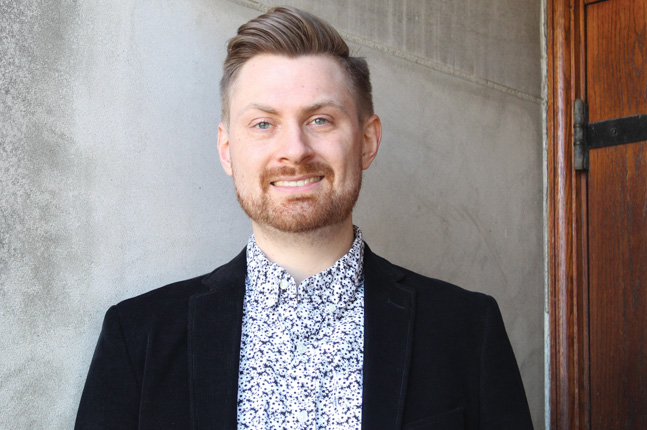Fraternity Chaplain Michael Schulte: From Hazed to Hero, Saving His Chapter From Hazing
By Michael Schulte, Phi Delta Theta Chaplain
“Michael, was there any hazing during your new member process?”
After initiating into Phi Delta Theta in 2011, I ran into my academic adviser while walking to class. My adviser was not just any faculty member; he had just stepped down from a temporary appointment as the vice president and dean of Student Life at Westminster College.
He knew fraternities. He knew there was hazing, even if his office could never prove it. He knew there was alcohol abuse, even if the event planning forms claimed otherwise. He knew. He was not naive.
But I was.
I replied, “No.”
I was not lying. I genuinely believed I had not been hazed.
I believed it even though the initiated members would force us to participate in military lineups where they screamed at us, calling us “pieces of shit” and other derogatory slurs every Tuesday.
I believed it even though we were told we could not eat any food that the brothers did not provide during initiation week. A lesson in mutual aid, we were told. This lesson involved us standing in front of our dining room and watching the initiated members eat. As they ate real food, we were given a bucket of slop. This one-pot meal would combine the worst of foods, and we were forced to eat it in front of them while they mocked and humiliated us.
I genuinely believed I was not being hazed even though the night before initiation, my pledge brothers and I were hoodwinked and forced to sit in a circle in our basement listening to loud music blast on the speakers all night. Later in life, I learned the CIA uses this same tactic to interrogate war criminals.
I was naive. I believed this behavior was “boys being boys.” I thought it was a friendly competition.
They could yell and scream. They could call me every name in the book. They could take away food, and they could take away sleep, but they would not defeat me. I was too stubborn to lose.
I believed that I would win.
Almost a year later, I was elected president and attended the Presidents Leadership Conference in St. Louis, Missouri. That first day, I paged through the participant binder and came across an article written by M. Scott Miechen, then the president of the General Council. The article detailed the hazing Mietchem experienced when he pledged Phi Delta Theta at the University of Utah in 1980. He described experiences similar to the ones I described above.
There was yelling. There was disgusting food. There was sleep deprivation.
As I read that article, it clicked. I was hazed.
I needed confirmation, so I texted our chapter vice president, “Did you know our chapter’s entire new member program is hazing?”
He responded: “Yes. Did you not?”
Today, as I reflect on these experiences, I cannot help but feel a deep sense of shame. I am ashamed that I was so naive. I regret allowing myself to be dehumanized to prove I belonged.
As an adult, I wish my sudden realization led to me taking a hard stand by eliminating all hazing activities during my tenure as president at Missouri Beta. It did not.
Unfortunately, the hazing didn’t end immediately, it was something that took time. We started out by eliminating the worst parts. We put a stop to food and sleep deprivation, modified harmful rituals, and punished members who refused to change. However, as chapter president, I also made compromises that appeased older members and even found myself participating in some of the more egregious activities. It would take two years and a membership review before we could claim to be hazing-free.
Eliminating hazing at Missouri Beta was the first step to transforming our organization. Our new commitment to member safety allowed us to attract higher-quality members. We went from being the smallest fraternity on campus to nearly tripling our chapter size in one recruitment cycle.
Our grades also improved. We went from having the lowest grades on campus to having the highest GPA for multiple semesters.
Our reputation shifted as well. As a freshman, faculty members told me not to join Phi Delt. When I graduated, we were among the only Greek organizations our college’s senior leadership recommended. Moreover, since making these changes, the Missouri Beta Chapter has won the Kansas City Trophy three times in eight years.
Hazing has no benefits. It perpetuates a culture of death, a culture that dehumanizes the very people we claim to call our brothers. Hazing diminishes one’s mental health by exacerbating feelings of anxiety and depression and can trigger past traumas or create new ones. At its worst, hazing can lead to the tragic loss of human life.
This National Hazing Prevention Week, I hope you will join me in standing against hazing in all its forms. It’s a decision you will never regret because it’s a decision that aligns with our principles and values the inherent dignity in each of our members.
Hazing is never worth it, and hazing has no place in Phi Delta Theta.
